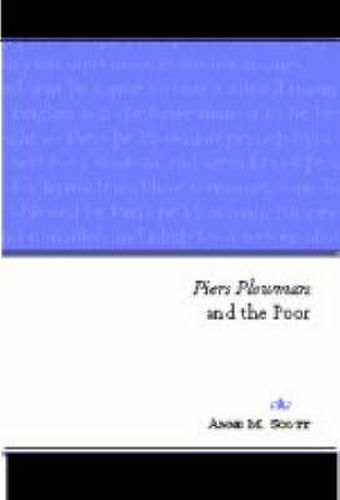Readings Newsletter
Become a Readings Member to make your shopping experience even easier.
Sign in or sign up for free!
You’re not far away from qualifying for FREE standard shipping within Australia
You’ve qualified for FREE standard shipping within Australia
The cart is loading…






This book will be of interest to scholars in the field of medieval literature in general, and Piers Plowman in particular, as well as to cultural historians of poverty. It surveys the medieval understanding of poverty in its many manifestations, reviews modern historians’ research into the experience of poverty and poor relief in the late fourteenth century, and shows, by close readings of Piers Plowman, how Langland both responds to and reflects his contemporary culture and ideology. Contrary to previous scholarship, it suggests that Langland never underestimates the realities of material poverty by offering only religious consolation for the poor. For him, care for the poor is the index of how a society shapes itself ethically. This book’s subtle and penetrating account of the moral predicaments of both rich and poor is fully and freshly contextualized within accounts of medieval poor relief. This scholarly, compelling and humane study demonstrates that understanding the historical poor and the various religious and secular attitudes to medieval poverty, are crucially important in deepening a reader’s understanding of this complex poem.
$9.00 standard shipping within Australia
FREE standard shipping within Australia for orders over $100.00
Express & International shipping calculated at checkout
This book will be of interest to scholars in the field of medieval literature in general, and Piers Plowman in particular, as well as to cultural historians of poverty. It surveys the medieval understanding of poverty in its many manifestations, reviews modern historians’ research into the experience of poverty and poor relief in the late fourteenth century, and shows, by close readings of Piers Plowman, how Langland both responds to and reflects his contemporary culture and ideology. Contrary to previous scholarship, it suggests that Langland never underestimates the realities of material poverty by offering only religious consolation for the poor. For him, care for the poor is the index of how a society shapes itself ethically. This book’s subtle and penetrating account of the moral predicaments of both rich and poor is fully and freshly contextualized within accounts of medieval poor relief. This scholarly, compelling and humane study demonstrates that understanding the historical poor and the various religious and secular attitudes to medieval poverty, are crucially important in deepening a reader’s understanding of this complex poem.